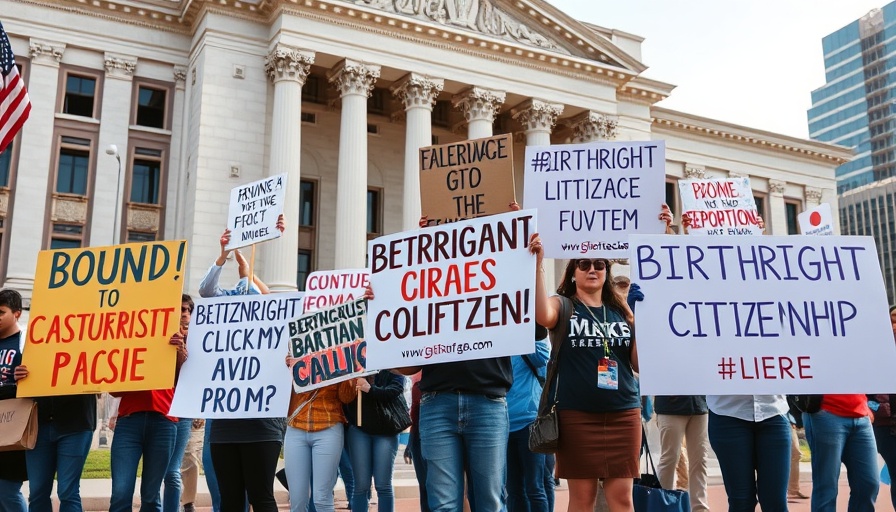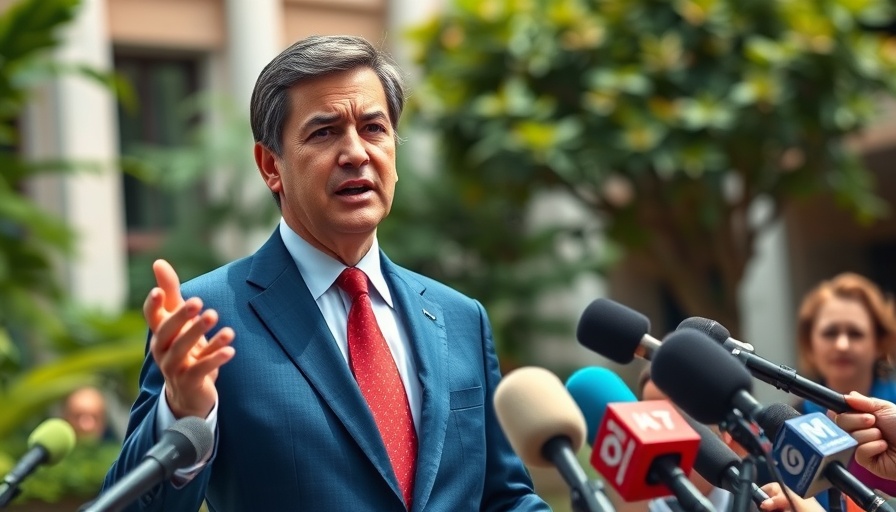
Understanding Recent Developments in Birthright Citizenship
The recent debate over birthright citizenship in the United States has intensified following a federal judge's inquiry about the implications of President Trump's executive order. This order could potentially impact the status of children born in the U.S. to parents who are undocumented or in the country temporarily.
The Judge's Dilemma: Deporting Newborns?
U.S. District Judge Deborah Boardman posed critical questions in a recent hearing, particularly about the possibility of deporting U.S.-born children whose parents are in this challenging legal situation. The judge's inquiries are aimed at clarifying the extent of the executive order and its enforcement timeline. Currently, the Supreme Court has suspended the enforcement of this order for 30 days, leaving uncertainty about its future applications.
Impacts on Families and Emotional Distress
Many families are experiencing heightened anxiety due to the potential consequences of this order. Plaintiffs' attorney William Powell highlighted that the order doesn’t merely threaten deportation; it induces fear and confusion among families who may feel their children are at risk of losing rights traditionally afforded to U.S. citizens. The ongoing legal battles surrounding this issue reflect a broader national anxiety over immigration and citizenship rights.
Legal Perspectives and Nationwide Implications
Judge Boardman is not alone in grappling with these issues. Other judges across the country, including those in Massachusetts and Washington state, are also interpreting the implications of the executive order's enforcement. The legal landscape is rapidly evolving, with New Jersey's Attorney General seeking a nationwide injunction to block the president's order in an effort to provide clarity and protection for those affected.
Counterarguments on Birthright Citizenship
The executive order has ignited fierce debate within legal and political arenas about the future of birthright citizenship in America. Proponents argue that it is essential for national security and sovereignty, whereas opponents assert that it undermines long-standing legal principles established by both tradition and statute. The contrasting views reflect deeper societal divisions on immigration policy and civil rights.
Current Events and Public Reaction
As various courts review the legislation, public opinion remains divided. Some argue that the executive order is a necessary measure to secure U.S. borders, while others see it as a cruel infringement on the rights of innocent children. Reports of protests and rallies emphasize a strong grassroots response to the ongoing legal battles, signaling that this issue will remain a prominent part of the national conversation.
A Call for Empathy and Understanding
The emotional narratives surrounding immigration policies demand a compassionate approach. Children, often the most affected, deserve consideration devoid of political agendas. Their futures hang in the balance as legal proceedings unfold, illustrating the human cost of bureaucratic decisions.
This situation calls for public engagement and awareness about the rights of all individuals, particularly vulnerable populations like immigrant families. As developments continue, it is essential for citizens to remain informed and participate in discussions that shape the future of immigration law in the United States.
Conclusion: The Importance of Being Informed
In this critical moment regarding birthright citizenship, staying informed about these unfolding events is crucial. As various courts navigate this complicated legal terrain, understanding the implications of these rulings will empower communities to advocate for fair treatment and justice. It’s vital to engage with these issues and consider how they impact society as a whole.
 Add Row
Add Row  Add
Add 




 Add Row
Add Row  Add
Add 

Write A Comment